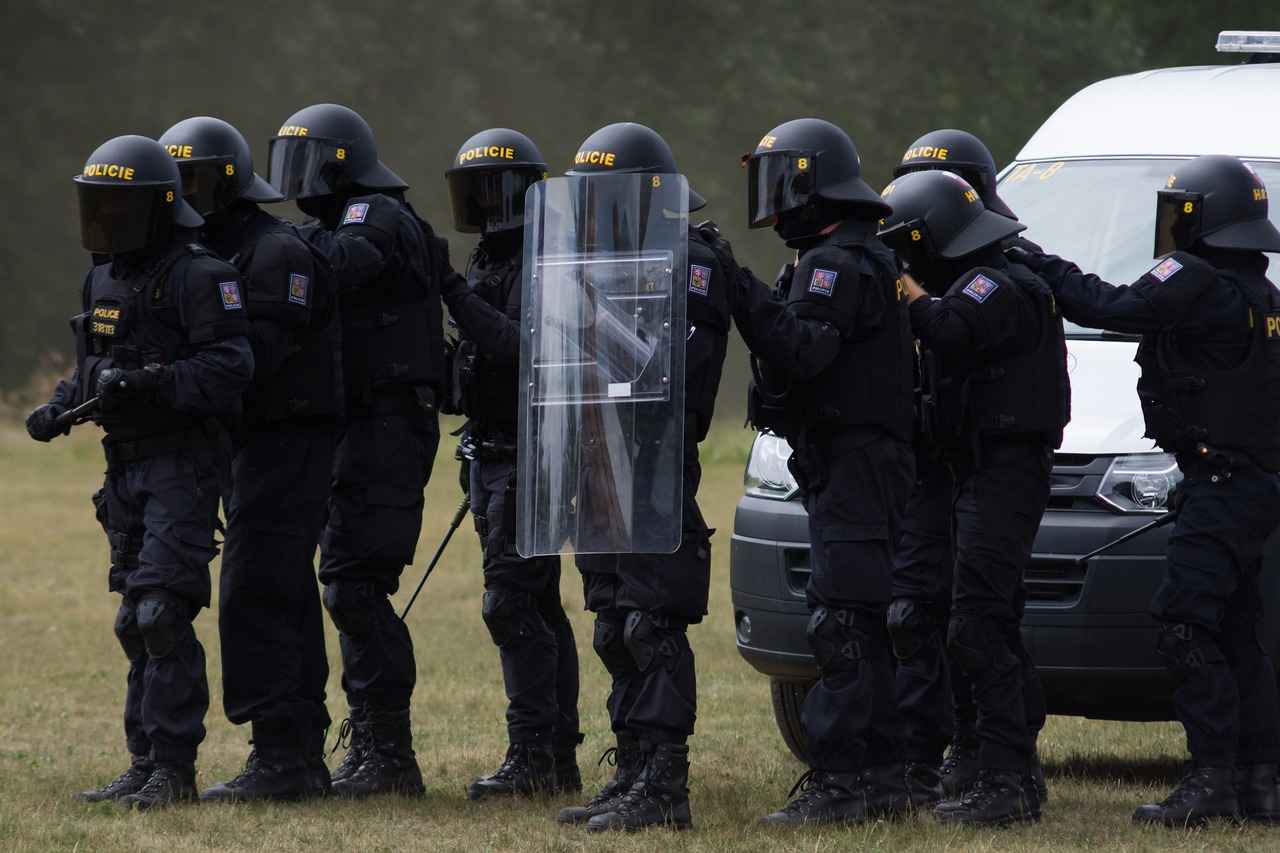This article explores the various strategies and initiatives employed by the West Bengal Police to ensure safety and security in the state during 2024. As challenges evolve, the police force adapts by implementing innovative practices aimed at enhancing public trust and improving crime prevention.
Introduction to West Bengal Police
The West Bengal Police has a rich history and plays a crucial role in maintaining law and order. With a structured hierarchy and dedicated personnel, the police force is committed to protecting the citizens and fostering a secure environment.
Key Initiatives for Public Safety
- Community Policing Programs: These programs aim to build trust between the police and local communities, facilitating better cooperation in crime prevention.
- Technological Advancements: The integration of advanced technology has made policing more efficient, enabling quicker responses to incidents and improved crime-solving rates.
Cybercrime Prevention Efforts
In response to the increasing prevalence of online threats, the West Bengal Police have prioritized cybercrime prevention. Specialized units have been established to tackle these offenses effectively.
- Cyber Crime Awareness Programs: These initiatives educate citizens on recognizing and reporting cybercrimes.
- Collaboration with Tech Companies: Partnering with technology firms enhances the police’s capabilities in combating digital threats.
Traffic Management Strategies
To ensure public safety on the roads, the West Bengal Police have implemented various traffic management strategies. These include:
- Smart Traffic Systems: Utilizing technology to monitor traffic flow, thereby reducing congestion.
- Public Transport Safety Measures: Increased surveillance and patrolling in public transport systems to protect commuters.
Collaborations with Other Agencies
Effective policing often requires collaboration with other agencies. The West Bengal Police have formed partnerships to enhance their operational efficiency:
- Joint Task Forces: Collaborations with other law enforcement agencies to tackle serious crimes.
- Community Engagement with NGOs: Working with NGOs to address social issues and promote safety initiatives.
Conclusion: The Future of Policing in West Bengal
As 2024 progresses, the West Bengal Police continue to innovate and adapt to ensure they remain a proactive force in maintaining safety and security across the state. Their commitment to community engagement and technological advancement is paving the way for a safer future.

Introduction to West Bengal Police
How the West Bengal Police Are Keeping the State Safe in 2024
This article explores the various strategies and initiatives employed by the West Bengal Police to ensure safety and security in the state during 2024.
The West Bengal Police boasts a rich history, dating back to its establishment in 1861. As the primary law enforcement agency in the state, it plays a pivotal role in maintaining law and order and ensuring the safety of its citizens. The structure of the West Bengal Police is designed to address various aspects of public safety, including crime prevention, traffic management, and community engagement. Understanding its organization and functions is crucial for appreciating its significant impact on public safety.
With a workforce that includes officers, constables, and specialized units, the West Bengal Police are equipped to handle diverse challenges. The department is divided into various divisions, each focusing on specific areas such as criminal investigation, traffic enforcement, and community policing. This structured approach allows for efficient resource allocation and rapid response to incidents.
In 2024, the West Bengal Police are emphasizing a proactive approach to crime prevention through community engagement and technological advancements. These initiatives not only enhance public safety but also foster a sense of trust and collaboration between the police and the communities they serve.
Furthermore, the West Bengal Police are committed to adapting to modern challenges, including cybercrime and urban safety concerns. By implementing specialized training programs and utilizing advanced technology, they are better prepared to tackle these evolving threats.
Conclusion
In summary, the West Bengal Police continue to evolve and adapt in their mission to safeguard the state. Their ongoing efforts in community engagement, technological integration, and specialized training highlight their commitment to creating a safer environment for all residents in West Bengal.

Key Initiatives for Public Safety
How the West Bengal Police Are Keeping the State Safe in 2024
This article explores the various strategies and initiatives employed by the West Bengal Police to ensure safety and security in the state during 2024.
Introduction to West Bengal Police
The West Bengal Police has a long-standing history and is responsible for maintaining law and order in the state. Understanding its structure and functions is vital to appreciating its role in public safety.
In 2024, the West Bengal Police have introduced several key initiatives aimed at enhancing public safety, including community engagement and technological advancements in policing. These initiatives are designed to create a safer environment for all residents and visitors.
- Community Engagement: The police are actively working to build strong relationships with local communities, fostering trust and collaboration.
- Technological Advancements: The integration of cutting-edge technology is transforming how the police operate, making them more efficient and responsive to crime.
Community Policing Programs
Community policing programs foster collaboration between the police and local communities, building trust and improving crime prevention efforts across West Bengal. Initiatives such as neighborhood watch schemes empower citizens to take an active role in crime prevention, ensuring that communities work together to enhance their safety.
Public Awareness Campaigns
Public awareness campaigns educate citizens about safety measures and encourage them to report suspicious activities, thereby enhancing community vigilance. These campaigns are crucial in creating a well-informed public that can contribute to their own safety.
Technological Advancements in Policing
The integration of technology in policing has revolutionized how the West Bengal Police operate, making them more efficient and responsive to crime. Smart surveillance systems, data analytics, and mobile applications are some of the tools being utilized to improve policing efforts.
Conclusion: The Future of Policing in West Bengal
As 2024 progresses, the West Bengal Police continue to adapt and innovate, ensuring that they remain a proactive force in maintaining safety and security in the state. By focusing on community engagement and technological advancements, they are setting a benchmark for effective policing in India.
Community Policing Programs
play a vital role in strengthening the bond between law enforcement and the communities they serve. In West Bengal, these programs are designed to create an environment of trust and collaboration, which is essential for effective crime prevention.
The essence of community policing lies in its emphasis on proactive measures rather than reactive responses. By involving local residents in policing efforts, the West Bengal Police can identify and address issues before they escalate into serious crimes. This approach not only enhances public safety but also fosters a sense of ownership among community members regarding their own security.
| Benefits of Community Policing | Description |
|---|---|
| Trust Building | Establishes a rapport between police and community members, leading to better communication. |
| Crime Reduction | Encourages community vigilance, which can lead to a decrease in local crime rates. |
| Enhanced Reporting | Residents are more likely to report suspicious activities when they trust the police. |
| Community Engagement | Empowers citizens to take an active role in maintaining their neighborhood’s safety. |
One of the key components of these programs is the establishment of Neighborhood Watch Schemes. These initiatives encourage residents to collaborate with law enforcement, fostering a community spirit focused on safety and security. By organizing regular meetings and training sessions, community members learn to identify potential threats and work together to mitigate them.
Additionally, Public Awareness Campaigns are launched to educate citizens about their role in crime prevention. These campaigns provide essential information on safety measures and encourage individuals to report any suspicious activities to the authorities. By enhancing community vigilance, the West Bengal Police can respond more effectively to potential threats.
In conclusion, community policing programs in West Bengal represent a forward-thinking approach to law enforcement. By fostering collaboration and trust between the police and local communities, these initiatives not only improve crime prevention efforts but also contribute to a safer and more cohesive society.
Neighborhood Watch Schemes
play a crucial role in fostering a sense of community and enhancing public safety. By encouraging residents to actively participate in crime prevention, these schemes create an environment where safety is a shared responsibility.
In essence, a Neighborhood Watch Scheme is a community-based initiative that empowers citizens to look out for one another. Participants are trained to recognize suspicious activities and report them to local law enforcement. This proactive approach not only deters crime but also builds trust among neighbors, creating a more cohesive community.
- Enhanced Communication: Neighborhood watch schemes promote open lines of communication between residents and police, allowing for real-time updates on crime trends and safety tips.
- Community Engagement: These programs encourage participation in local events, fostering a sense of belonging and mutual support among residents.
- Crime Prevention Education: Members receive training on crime prevention strategies, helping them to identify and address potential threats effectively.
Moreover, neighborhood watch schemes often collaborate with local law enforcement to host workshops and community meetings. These gatherings serve as platforms for discussing safety concerns and sharing valuable resources. For example, residents can learn about home security measures, emergency preparedness, and how to establish a neighborhood communication network.
In 2024, the West Bengal Police have recognized the importance of these schemes and have actively supported their development. By providing resources and guidance, they ensure that neighborhoods are equipped to handle safety challenges effectively. This partnership not only enhances community resilience but also strengthens the relationship between law enforcement and the public.
In conclusion, are a vital component of community safety initiatives. By empowering residents to take an active role in crime prevention, these programs create safer neighborhoods and foster a spirit of cooperation that benefits everyone involved.
Public Awareness Campaigns
play a crucial role in enhancing community safety and vigilance. These campaigns are designed to educate citizens about various safety measures and empower them to take action in their neighborhoods. By fostering a culture of awareness, the West Bengal Police aim to create a more engaged and vigilant community, which is essential for effective crime prevention.
The primary objective of these campaigns is to inform the public about potential threats and the importance of reporting suspicious activities. Citizens are encouraged to be observant and proactive, recognizing that their involvement can significantly impact the safety of their surroundings. These initiatives often utilize various media platforms, including social media, local news outlets, and community events, to reach a wider audience.
- Educational Workshops: Regular workshops are organized to teach community members about safety protocols, such as emergency response techniques and recognizing signs of criminal behavior.
- Informational Flyers: Distribution of flyers and brochures that outline safety tips and resources available for reporting crimes.
- Online Campaigns: Utilizing social media to spread awareness, share success stories, and encourage community members to engage in discussions about safety.
Furthermore, these campaigns often include partnerships with local organizations and schools to ensure that the message reaches all demographics, including children and the elderly. By involving various community stakeholders, the West Bengal Police can enhance the effectiveness of their outreach efforts.
In conclusion, public awareness campaigns are a vital component of the West Bengal Police’s strategy to enhance community vigilance. By educating citizens and encouraging them to report suspicious activities, these initiatives not only promote safety but also foster a sense of community responsibility. The more informed and involved citizens are, the safer their neighborhoods will become.
Technological Advancements in Policing
The integration of technology in policing has fundamentally transformed the operations of the West Bengal Police, enhancing their efficiency and responsiveness to crime. In 2024, the police force has embraced various technological advancements that have streamlined their processes and improved public safety.
One of the most significant advancements is the implementation of real-time data analytics. This technology allows officers to analyze crime patterns and trends swiftly, enabling them to allocate resources more effectively. By utilizing data-driven insights, the West Bengal Police can anticipate potential crime hotspots and deploy personnel proactively, thereby preventing crime before it occurs.
Moreover, the introduction of body-worn cameras has enhanced accountability and transparency within the police force. These cameras not only provide an objective record of interactions between officers and the public but also serve as a deterrent against misconduct. Citizens are more likely to engage positively with law enforcement when they know their encounters are being recorded.
Another crucial technological advancement is the use of mobile applications designed for public safety. These apps allow citizens to report crimes, share information, and receive alerts about local incidents in real-time. Such initiatives foster a collaborative environment where the community and police work together to enhance safety.
Furthermore, surveillance technology, including drones and advanced CCTV systems, has been integrated into policing strategies. These tools provide comprehensive coverage of urban areas, allowing for rapid response to incidents and aiding in investigations.
As the West Bengal Police continue to embrace these technological advancements, their ability to maintain law and order becomes increasingly effective. This ongoing evolution not only enhances the safety of the community but also builds greater trust between the police force and the citizens they serve.

Cybercrime Prevention Efforts
In the digital age, the prevalence of cybercrime has surged, prompting the West Bengal Police to take decisive action in safeguarding its citizens. Recognizing the unique challenges posed by online threats, the police force has established specialized units dedicated to cybercrime prevention. These units are equipped with advanced tools and trained personnel who are adept at tackling various forms of cyber offenses, from identity theft to online harassment.
Establishment of Cybercrime Units
The West Bengal Police have formed dedicated cybercrime units that focus on investigating and preventing online crimes. These units work collaboratively with other law enforcement agencies and technology experts to stay ahead of emerging threats. Their primary goal is to create a safer online environment for all residents of West Bengal.
Public Awareness and Education
One of the key strategies employed by the West Bengal Police is the implementation of cybercrime awareness programs. These initiatives aim to educate citizens about the risks associated with online activities. Workshops and seminars are conducted to teach individuals how to recognize suspicious online behavior and report it to the authorities promptly. By empowering citizens with knowledge, the police foster a culture of vigilance against cyber threats.
Collaboration with Technology Firms
To enhance their capabilities in combating cybercrime, the West Bengal Police have partnered with various technology companies. This collaboration allows the police to leverage cutting-edge technology and tools that aid in the investigation and prevention of cyber offenses. Such partnerships are crucial in developing effective strategies to combat the ever-evolving landscape of cyber threats.
Utilization of Advanced Cyber Forensics
Advanced cyber forensics techniques are employed by the police to analyze and trace cybercrime activities. These methods help in gathering evidence against perpetrators, ensuring that justice is served. The West Bengal Police are committed to staying updated with technological advancements to improve their investigative processes.
Conclusion: A Safer Digital Future
The proactive measures taken by the West Bengal Police in cybercrime prevention are vital in today’s digital landscape. By focusing on education, collaboration, and advanced investigative techniques, they are paving the way for a safer online environment for all citizens. As cyber threats continue to evolve, the commitment of the West Bengal Police to adapt and innovate remains unwavering, ensuring that they effectively combat cybercrime in the years to come.
Cyber Crime Awareness Programs
play a crucial role in the modern digital landscape, where online threats are becoming increasingly prevalent. As technology advances, so do the tactics employed by cybercriminals, making it essential for citizens to be informed and vigilant.
The West Bengal Police have recognized the importance of these programs in fostering a safer online environment. By educating the public about various cyber threats, such as phishing, identity theft, and online scams, these initiatives empower individuals to protect themselves and their personal information.
What Are Cyber Crime Awareness Programs?
- Cyber Crime Awareness Programs are structured educational initiatives designed to inform citizens about the risks associated with online activities.
- These programs typically include workshops, seminars, and online resources that cover essential topics related to cyber safety.
- Participants learn how to identify potential threats and understand the steps they can take to mitigate risks.
Why Are They Important?
- With the rise in internet usage, more individuals are exposed to potential cyber threats.
- Awareness programs help in recognizing suspicious activities, enabling timely reporting to authorities.
- They also promote a culture of safety in online interactions, encouraging people to think critically about their digital footprint.
How Do These Programs Operate?
Cyber Crime Awareness Programs often collaborate with educational institutions, community centers, and local businesses to reach a wider audience. They may include:
- Interactive Workshops: Hands-on sessions where participants can learn about cybersecurity tools and best practices.
- Online Resources: Websites and social media campaigns that provide tips and updates on current cyber threats.
- Community Engagement: Initiatives that encourage local communities to share information and resources related to cyber safety.
Conclusion
In conclusion, Cyber Crime Awareness Programs are vital for equipping citizens with the knowledge and skills necessary to navigate the digital world safely. By fostering a well-informed community, the West Bengal Police are taking significant steps towards reducing the prevalence of cybercrime and enhancing overall public safety.
Collaboration with Tech Companies
In today’s digital age, collaboration with technology companies has become essential for law enforcement agencies, particularly in combating the growing threat of cybercrime. The West Bengal Police have recognized this need and are actively engaging with tech firms to enhance their operational capabilities.
By partnering with leading tech companies, the West Bengal Police gain access to advanced tools and resources that significantly improve their ability to fight cybercrime. This collaboration allows them to utilize cutting-edge technologies such as artificial intelligence, machine learning, and big data analytics to identify and respond to cyber threats more effectively.
One of the key benefits of these partnerships is the development of specialized software that aids in tracking cybercriminal activities. For instance, real-time monitoring systems can analyze vast amounts of data to detect suspicious patterns, enabling quicker responses to potential threats. Moreover, tech companies often provide training and support to police personnel, ensuring that they are well-equipped to use these advanced tools.
Additionally, these collaborations foster a culture of innovation within the police force. By working closely with tech experts, law enforcement officers can stay updated on the latest trends and threats in the digital landscape. This proactive approach not only enhances their investigative capabilities but also builds public trust in their ability to safeguard citizens in the cyber realm.
Furthermore, public-private partnerships can lead to the creation of community awareness programs aimed at educating the public about cyber safety. By leveraging the expertise of tech companies, the West Bengal Police can develop resources that inform citizens about potential online dangers and how to protect themselves.
In conclusion, the collaboration between the West Bengal Police and technology companies is a pivotal strategy in the fight against cybercrime. By harnessing innovative technologies and fostering community awareness, they are better positioned to protect the public and maintain law and order in an increasingly digital world.

Traffic Management Strategies
Effective traffic management is essential for ensuring public safety and facilitating smooth transportation across urban and rural areas. The West Bengal Police have adopted a range of innovative strategies in 2024 to address the challenges of traffic congestion and road safety.
- Smart Traffic Systems: The implementation of smart traffic systems has transformed how traffic flow is monitored and managed. These systems utilize real-time data to adjust traffic signals and optimize vehicle movement, significantly reducing congestion on major roads.
- Public Transport Safety Measures: Enhanced safety measures in public transport are crucial for protecting commuters. The West Bengal Police have increased surveillance on public transport vehicles and stations, ensuring a safer environment for passengers.
- Traffic Awareness Campaigns: The police have initiated several campaigns aimed at educating the public about traffic rules and safe driving practices. These campaigns are critical in promoting responsible behavior among drivers and pedestrians alike.
- Collaboration with Local Authorities: By partnering with local government bodies, the West Bengal Police can implement targeted traffic management initiatives that address specific regional challenges, such as road construction and urban development.
Moreover, the West Bengal Police are leveraging technology to enhance traffic management. The use of drones for monitoring traffic patterns and detecting violations has proven effective in real-time enforcement. Additionally, mobile applications have been developed to provide commuters with live traffic updates, helping them make informed travel decisions.
In conclusion, the comprehensive traffic management strategies employed by the West Bengal Police in 2024 not only aim to improve road safety but also enhance the overall efficiency of transportation systems in the state. By integrating technology, community engagement, and public awareness, the police are committed to creating a safer environment for all road users.
Smart Traffic Systems
play a pivotal role in modern urban management, utilizing advanced technology to enhance the flow of vehicles and ensure the safety of all road users. These systems are designed to monitor traffic patterns in real-time, allowing for dynamic adjustments that can alleviate congestion and reduce travel times.
By employing sensor technology, smart traffic systems can gather data on vehicle speeds, volume, and road conditions. This information is then processed using sophisticated algorithms to optimize traffic signals and manage the overall flow of traffic. As a result, cities can experience a significant decrease in traffic jams, leading to smoother commutes for drivers and pedestrians alike.
Moreover, these systems contribute to road safety by integrating features such as automatic incident detection. When an accident occurs, the system can immediately alert emergency services and redirect traffic to prevent further incidents. This proactive approach not only saves lives but also minimizes disruption to the traffic network.
In addition to improving traffic flow and safety, smart traffic systems also promote environmental sustainability. By reducing idle times and optimizing routes, these systems help decrease fuel consumption and lower emissions, contributing to cleaner air in urban areas.
Furthermore, the incorporation of public transportation management within smart traffic systems ensures that buses and other forms of public transit operate efficiently. Real-time tracking allows for better scheduling and coordination, making public transport a more attractive option for commuters.
As cities continue to grow, the implementation of smart traffic systems will be essential in managing urban mobility. With ongoing advancements in technology, the future of traffic management looks promising, paving the way for safer, more efficient, and environmentally friendly transportation networks.
Public Transport Safety Measures
Ensuring the safety of commuters in public transport is a top priority for law enforcement agencies, particularly in bustling urban areas. In 2024, various safety measures have been implemented to enhance security and create a safer commuting environment. These measures are focused on increasing surveillance, enhancing patrolling efforts, and fostering community awareness.
- Increased Surveillance: The use of advanced surveillance technologies, such as CCTV cameras, has become commonplace in public transport systems. These cameras are strategically placed in stations and vehicles to monitor activities, ensuring that any suspicious behavior is promptly addressed.
- Enhanced Patrolling: Regular patrols by police officers and security personnel in and around public transport hubs serve as a deterrent to potential criminals. Their visible presence helps to reassure commuters and fosters a sense of safety.
- Emergency Response Systems: Public transport systems have integrated emergency response mechanisms that allow commuters to report incidents quickly. This includes panic buttons installed in vehicles and at stations, ensuring immediate assistance is available when needed.
- Training for Staff: Transport staff are trained to handle various security situations, including how to de-escalate conflicts and assist passengers in emergencies. This training empowers them to act swiftly and effectively.
- Public Awareness Campaigns: Initiatives aimed at educating commuters about safety protocols and encouraging them to remain vigilant are essential. Informational posters and announcements remind passengers to report any suspicious activities.
Through these comprehensive safety measures, public transport authorities and law enforcement agencies work together to create a secure environment for all commuters. By prioritizing safety, they aim to deter criminal activities and ensure that public transport remains a reliable means of travel.

Collaborations with Other Agencies
In today’s complex landscape of law enforcement, effective policing often necessitates the establishment of strong partnerships with various agencies. The West Bengal Police have recognized this need and have actively sought to enhance their operational efficiency and effectiveness through collaboration.
One of the primary strategies employed by the West Bengal Police is the formation of joint task forces. These task forces bring together personnel from different law enforcement and intelligence agencies to tackle serious crimes and security threats in a coordinated manner. By pooling resources and expertise, these collaborations result in a more robust approach to crime fighting, allowing for quicker response times and more effective investigations.
Furthermore, the West Bengal Police have engaged in meaningful partnerships with non-governmental organizations (NGOs). These collaborations focus on addressing social issues that contribute to crime, such as poverty, education, and community health. By working alongside NGOs, the police can implement public safety initiatives that resonate with the community, fostering trust and cooperation between law enforcement and citizens.
| Type of Collaboration | Description |
|---|---|
| Joint Task Forces | Collaborative units formed with other law enforcement agencies to tackle serious crimes. |
| Community Engagement with NGOs | Partnerships aimed at addressing social issues and promoting public safety initiatives. |
In addition to these collaborations, the West Bengal Police also participate in intelligence-sharing networks with other states and national agencies. This exchange of information is crucial for preemptively identifying and mitigating potential threats, thereby enhancing overall public safety.
As the West Bengal Police continue to strengthen their partnerships with various agencies, they set a precedent for effective policing that prioritizes community safety and collaboration. This approach not only improves operational efficiency but also builds a safer environment for all citizens.
Joint Task Forces
play a crucial role in modern law enforcement, particularly in addressing serious crimes and security threats. By collaborating with various law enforcement and intelligence agencies, these task forces enhance the effectiveness of policing efforts, ensuring a comprehensive approach to public safety.
The formation of joint task forces allows for the pooling of resources, expertise, and intelligence among different agencies. This coordinated approach is essential in tackling complex issues such as organized crime, terrorism, and cyber threats. Each agency brings its unique strengths to the table, which can significantly improve the overall response to crime and security challenges.
One of the primary advantages of joint task forces is the ability to share critical information in real-time. This information sharing can lead to quicker identification of suspects and more effective operations. For instance, when local police collaborate with federal agencies, they can access databases and intelligence that may not be available to them independently. This collaboration is vital in preventing crimes before they occur and in apprehending criminals more efficiently.
Moreover, joint task forces often engage in joint training exercises, which enhance the skills of officers from different agencies. These exercises foster teamwork and understanding among personnel, which is crucial during real-life operations. The combined training ensures that all members are well-prepared and can operate cohesively under pressure.
In addition to operational benefits, joint task forces also serve a significant public relations role. By visibly collaborating, law enforcement agencies can build trust within the community, showing that they are united in the fight against crime. This transparency can enhance public confidence in law enforcement, encouraging community members to report suspicious activities and support police initiatives.
In conclusion, the establishment of joint task forces with other law enforcement and intelligence agencies is a strategic move that enhances the overall effectiveness of policing. By fostering collaboration, sharing resources, and engaging in joint training, these task forces are better equipped to tackle serious crimes and security threats, ultimately leading to safer communities.
Community Engagement with NGOs
plays a pivotal role in enhancing the effectiveness of policing efforts, particularly in addressing social issues and promoting public safety initiatives at the grassroots level. The collaboration between the West Bengal Police and non-governmental organizations (NGOs) fosters a holistic approach to community safety, ensuring that the needs of the populace are met through innovative solutions.
NGOs often have deep-rooted connections within local communities, which enables them to identify and address specific social challenges. By partnering with these organizations, the police can leverage their insights and resources to develop targeted initiatives that resonate with the community. This collaboration not only enhances the police’s understanding of local dynamics but also builds trust between law enforcement and citizens.
One significant aspect of this engagement is the implementation of community outreach programs. These programs are designed to educate citizens about safety practices, crime prevention strategies, and their rights. Through workshops and seminars, NGOs help disseminate crucial information that empowers individuals to take an active role in their own safety and the safety of their neighborhoods.
Moreover, NGOs often assist in addressing root causes of crime, such as poverty, lack of education, and social inequality. By focusing on these underlying issues, the police can work towards reducing crime rates in a sustainable manner. For instance, initiatives that provide vocational training or educational support can significantly impact youth engagement in criminal activities.
Additionally, the collaboration with NGOs facilitates the establishment of support networks for victims of crime. These networks offer counseling, legal aid, and other forms of support, ensuring that victims receive the help they need while also encouraging them to report incidents to the police.
In conclusion, the partnership between the West Bengal Police and NGOs is a vital component of effective policing. By addressing social issues collaboratively, they promote a safer environment and foster a sense of community ownership over public safety initiatives. This model not only enhances the police’s operational effectiveness but also strengthens community bonds, paving the way for a more secure future.

Conclusion: The Future of Policing in West Bengal
How the West Bengal Police Are Keeping the State Safe in 2024
The West Bengal Police are making significant strides in ensuring the safety and security of its citizens throughout 2024. By embracing innovative strategies and community-focused initiatives, they are evolving into a more proactive force. This article delves into the various measures being implemented to maintain law and order in the state.
Introduction to West Bengal Police
The West Bengal Police, with its rich history, plays a crucial role in maintaining peace and order across the state. Understanding its structure and operations is essential for recognizing its impact on public safety.
Key Initiatives for Public Safety
- Community Policing Programs: These programs encourage collaboration between the police and local communities, fostering trust and enhancing crime prevention efforts.
- Neighborhood Watch Schemes: Empowering citizens to take an active role, these schemes promote community cooperation in crime prevention.
- Public Awareness Campaigns: Educating citizens about safety measures encourages them to report suspicious activities, thus improving community vigilance.
Technological Advancements in Policing
The integration of technology has transformed the West Bengal Police’s operations, making them more effective in responding to crime.
Cybercrime Prevention Efforts
- Cyber Crime Awareness Programs: These initiatives educate citizens on cyber safety, helping them recognize and report online offenses.
- Collaboration with Tech Companies: Partnering with technology firms enhances the police’s capabilities in combating cybercrime.
Traffic Management Strategies
Effective traffic management is essential for public safety, and the West Bengal Police have implemented various strategies to ensure safe transportation.
Collaborations with Other Agencies
Forming partnerships with other law enforcement and intelligence agencies allows for a coordinated approach to tackling serious crimes.
As 2024 progresses, the West Bengal Police are committed to adapting and innovating. By focusing on community engagement, technological advancements, and collaborative efforts, they are ensuring that they remain a proactive force in maintaining safety and security in the state.
Frequently Asked Questions
- What initiatives are the West Bengal Police implementing for public safety in 2024?
The West Bengal Police are focusing on community engagement, technological advancements, and public awareness campaigns to enhance safety. Programs like neighborhood watch schemes empower citizens to participate actively in crime prevention.
- How is the West Bengal Police addressing cybercrime?
To combat cybercrime, the West Bengal Police have established specialized units and are conducting awareness programs to educate citizens about online safety. Collaborations with tech companies also enhance their capabilities in tackling digital threats.
- What traffic management strategies are in place?
The police have implemented smart traffic systems to monitor and manage traffic flow, aiming to reduce congestion and improve road safety. Additionally, they are enhancing safety measures in public transport to protect commuters.
- How does the West Bengal Police collaborate with other agencies?
They form joint task forces with other law enforcement and intelligence agencies for a coordinated approach to serious crimes. Partnerships with NGOs also help address social issues and promote public safety initiatives at the grassroots level.
- What is the future outlook for policing in West Bengal?
As 2024 progresses, the West Bengal Police aim to continue adapting and innovating, ensuring they remain a proactive force in maintaining safety and security across the state.


























































